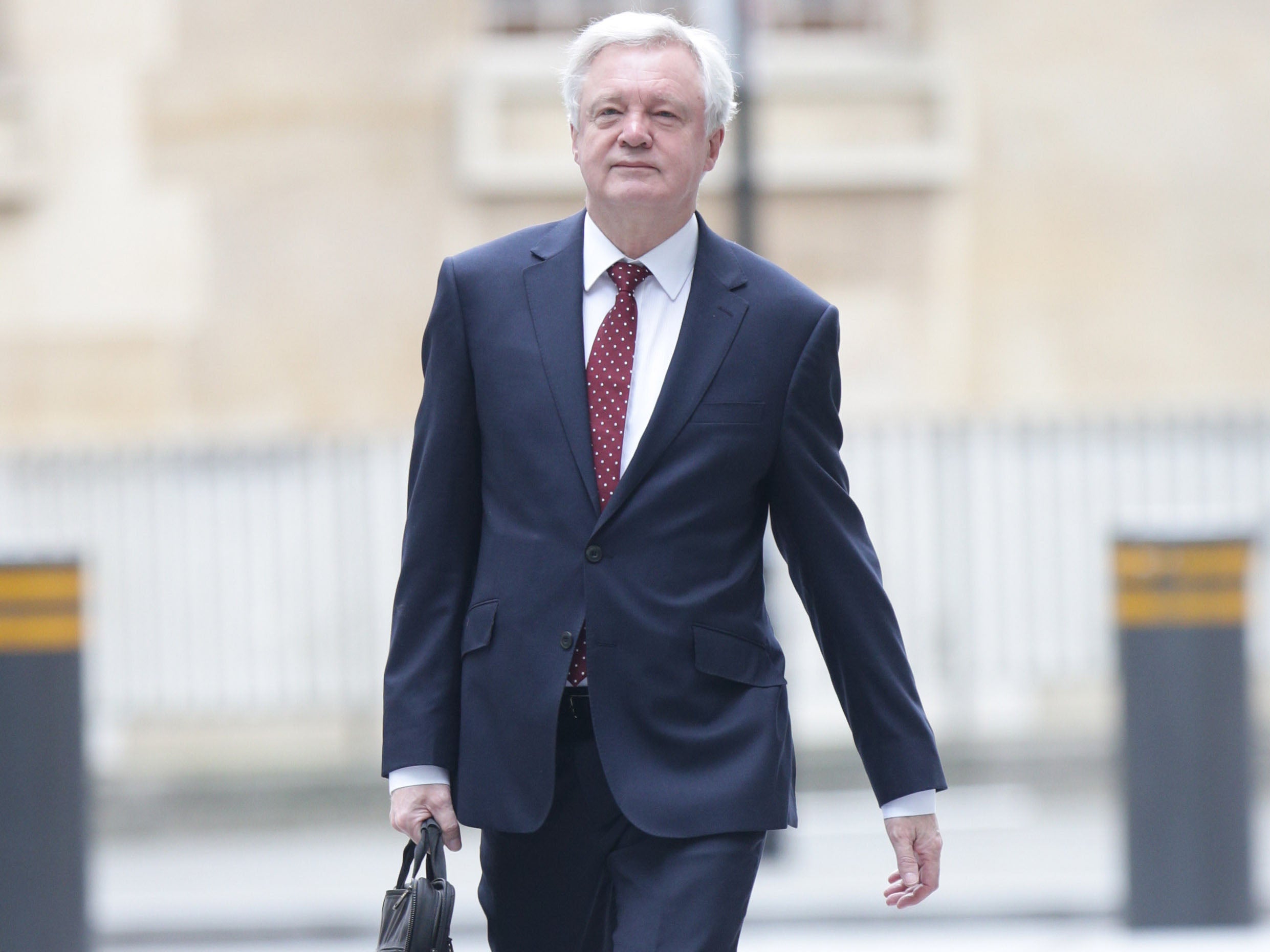The EU Withdrawal Bill could practically turn Britain into a one party state under the Tories
If the Government wants to do something major with its new powers, like create a criminal offence, it will in theory have to seek an affirmative vote in Parliament, although it won’t have to go through the full process of parliamentary scrutiny. Even more worrying is what ministers will have the power to abolish in the process of Brexit


Your support helps us to tell the story
From reproductive rights to climate change to Big Tech, The Independent is on the ground when the story is developing. Whether it's investigating the financials of Elon Musk's pro-Trump PAC or producing our latest documentary, 'The A Word', which shines a light on the American women fighting for reproductive rights, we know how important it is to parse out the facts from the messaging.
At such a critical moment in US history, we need reporters on the ground. Your donation allows us to keep sending journalists to speak to both sides of the story.
The Independent is trusted by Americans across the entire political spectrum. And unlike many other quality news outlets, we choose not to lock Americans out of our reporting and analysis with paywalls. We believe quality journalism should be available to everyone, paid for by those who can afford it.
Your support makes all the difference.Theresa May has quite rightly taken much of the flak for what is widely accepted as one of the worst general election campaigns in living memory. Throw in the fact she blew an estimated £150m of taxpayers’ money on said endeavour and it’s easy to see why she resembles the political equivalent of the Walking Dead. Indeed she will now go down as the second consecutive Tory Prime Minister to have bet the house on a self-aggrandising, unnecessary vote and lost everything as a result.
Although the election was a disaster for her and her party, it’s been a boon for both the Corbyn project and the majority of the British public opposed to a hard Brexit. It gave the nation the chance to give their verdict on the Tories’ vision for Britain outside of the EU. An offer which amounted to a future of international isolation, with a bargain basement economy. The “Great Repeal Bill”, which was initially outlined in March, was set to give ministers almost unprecedented powers to erode rights and freedoms formerly protected by EU law.
Overwhelmingly the electorate rejected this vision. They stripped the Conservatives of their majority and delivered Labour our biggest share of the vote since 2001. When the Government published its EU Withdrawal Bill, and a range of other position papers ahead of the first negotiations last week, many expected Theresa May and David Davis to retreat on some of the worst aspects of their agenda – which Liberty said left “gaping holes where our rights should be”.
In fact, their plans are even worse than we thought. The stated aim of the legislation published on Thursday is to take Britain out of Europe and move all EU laws into British law. That might seem sensible, but just as before the Bill contains a series of delegated powers and “Henry VIII clauses”. Ministers will be able to make new laws without Parliament voting.
Even more worrying is what ministers will have the power to abolish in the process of Brexit. EU law provides agency workers with the right to equal treatment, and all workers with maximum working hours. It forces governments to take environmental legislation seriously, and to protect air and water standards. The Charter of Fundamental Rights, which the Withdrawal Bill explicitly abolishes in British law, forms part of the legal basis on which same sex-couples now get the same pension rights as opposite sex ones. And then there are the protections for consumers and food safety, and the regulation of the financial sector.
There are scant limits on when ministers can use these powers. We are given a list of circumstances under which they might use them in the bill, but then told that the list is non-exhaustive. If the Government wants to do something major with its new powers, like create a public authority or a criminal offence, it will in theory have to seek an affirmative vote in Parliament, although it won’t have to go through the full process of parliamentary scrutiny. But if a minister deems that the matter is “urgent” then no vote need take place. With the clock ticking on Brexit negotiations, what won’t count as “urgent”?
I don’t buy that all of this is just vagueness that needs clearing up, or for that matter that Boris Johnson telling Michel Barnier to “go whistle” was just a gaffe. Both are calculated. Theresa May’s administration is in crisis, and many Tories will do anything to cling to power and enact their ideologue version of Brexit – even if it means tearing up our relationship with Europe. In the process, they will use legislation like the EU Withdrawal Bill to run away from scrutiny at every opportunity.
A government with no mandate is attempting to rewrite the rules of our democracy, putting cherished rights and freedoms in grave danger. MPs from all parties now have a duty to stand up and be counted – to vote for amendments which make this bill tolerable, or, if that can’t happen, to block it entirely and bring down the Government. If Theresa May wants to remain in Number 10 for even a few more months, she had better learn some humility.
Clive Lewis is Labour MP for Norwich South
Join our commenting forum
Join thought-provoking conversations, follow other Independent readers and see their replies
Comments